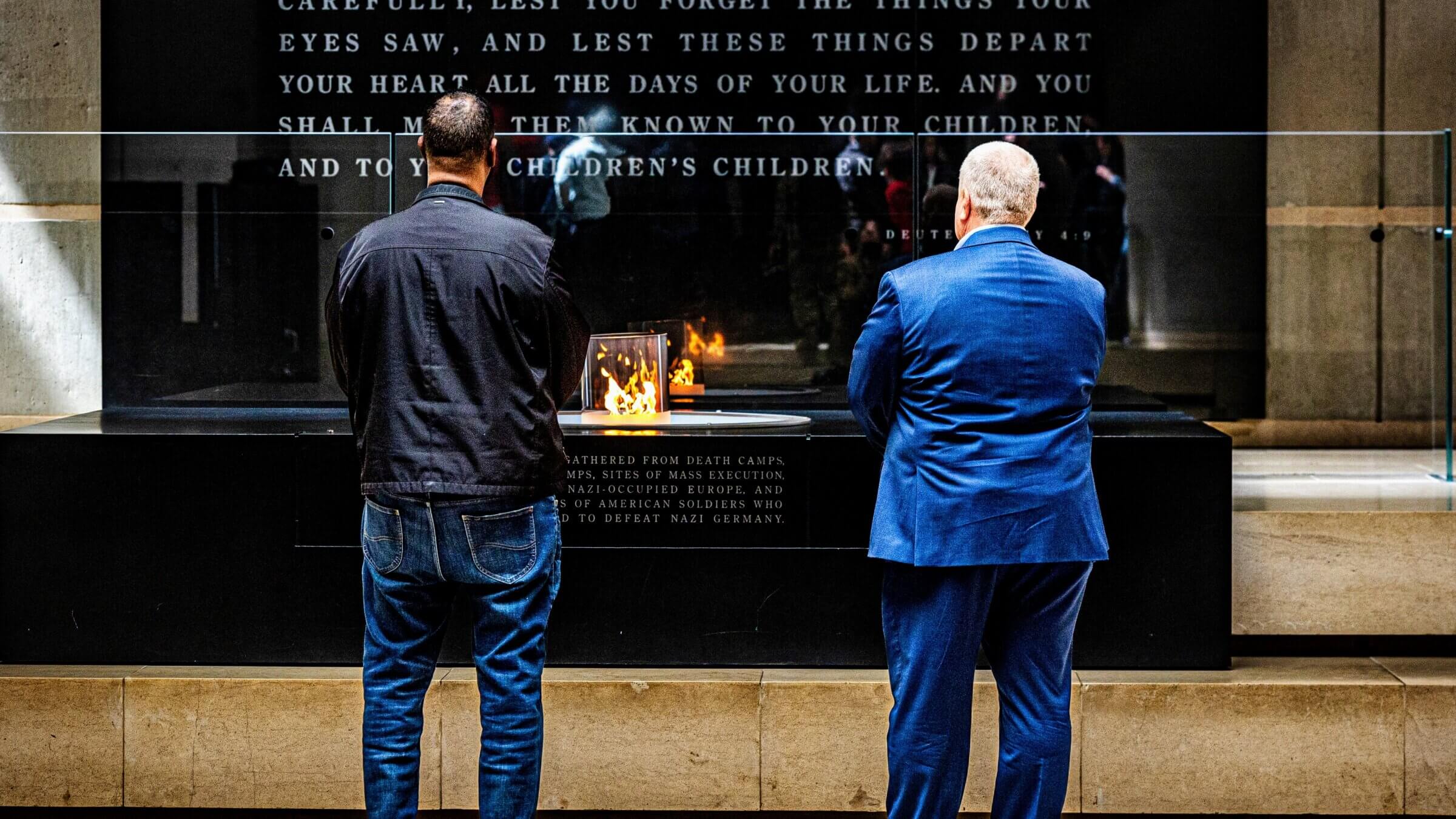Holocaust education is important — as is studying the genocide of Indigenous peoples
For Indigenous Peoples’ Day, a state legislator makes the case that Holocaust memorialization and genocide education should go hand-in-hand.

Minnesotans visit the United States Holocaust Memorial Museum in a multi-ethnic delegation organized by the Jewish Community Relations Council in 2022. Photo by Ethan Roberts Photography/JCRC
In Minnesota, enduring cooperation between the Jewish and Native American communities is bearing fruit. Earlier this year, I was approached by the local Jewish Community Relations Council to carry legislation mandating Holocaust and genocide studies in Minnesota schools. As a child of Holocaust survivors, I have a long-standing interest in proper memorialization of the Holocaust, as well as other genocides.
After discussion with fellow legislators, including all three Indigenous members of the Minnesota House, it became apparent to us that it should cover all genocides and that it specifically name the genocide of Indigenous peoples, a significant population in Minnesota. The state holds the ghastly record of the largest mass hanging in American history, during which 38 Dakota men were hanged in Mankato in 1862, in front of a crowd of 4,000 people.
The state holds the ghastly record of the largest mass hanging in American history, during which 38 Dakota men were hanged in Mankato in 1862, in front of a crowd of 4,000 people.
As Ethan Roberts of the JCRC put it, “Being in community with other Minnesotans who have been victims of genocide has long been a priority of ours.” The legislation, HF 2968, was authored by a diverse group of legislators, including my three Indigenous colleagues.
During my presentation of the bill before an education committee, I held up a thick bound copy of an oral history project I completed in 1980 as an undergraduate at Macalester College in St. Paul. I embarked on that project to preserve my family’s Holocaust survival stories and pass them on to future generations.
Preservation of Holocaust memory, I argued before the House education committee, is especially vital in an era of growing antisemitism and Holocaust denial. After my presentation, the committee heard from Dora Zeidenweber, a 99-year-old Polish Auschwitz survivor who told legislators, “Mass murders can happen and people have to understand to learn to live with each other.”
Her testimony was followed by Gabriela Spears-Rico, a University of Minnesota professor with expertise in Native American studies.
“As Indigenous people from this continent, we are often left out of history curriculum in our public schools; the genocide that occurred to our peoples is hardly or only referentially mentioned in history classes,” she stated. “In Minnesota, it is particularly important for curriculum to include the Dakota genocide, as well as Ojibwe and Ho-Chunk dispossession that took place, all of which involved mass deportations of American Indian people within and outside of the state.”
The legislation passed into law. Of the 24 states that now have Holocaust and genocide studies mandates, only three — Illinois, Oregon and now Minnesota — include specific mention of the genocide of Indigenous people.
Dora Zeidenweber, of blessed memory, died on Sept. 21. At her funeral, she was remembered as a fierce fighter for Holocaust education and for her riveting testimony. It was important to her that other genocides be included in the educational mandate.
On this Indigenous Peoples Day, we must redouble our efforts to acknowledge the genocide that took place in this nation. It is my fervent hope that other states will follow Minnesota’s example and specifically mandate the study of Indigenous genocide. That history is an essential part of the American story and is a necessary prerequisite for long-delayed reconciliation and justice for Indigenous communities.
A message from our CEO & publisher Rachel Fishman Feddersen
I hope you appreciated this article. Before you go, I’d like to ask you to please support the Forward’s award-winning, nonprofit journalism during this critical time.
We’ve set a goal to raise $260,000 by December 31. That’s an ambitious goal, but one that will give us the resources we need to invest in the high quality news, opinion, analysis and cultural coverage that isn’t available anywhere else.
If you feel inspired to make an impact, now is the time to give something back. Join us as a member at your most generous level.
— Rachel Fishman Feddersen, Publisher and CEO